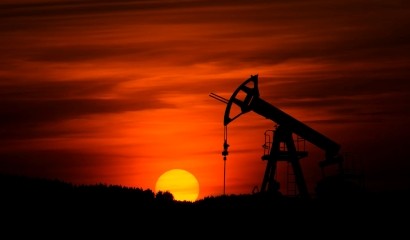Orsted woes highlight new level of political risk for European energy businesses – comment
It’s not what you know but who you know, as Orsted has found to its cost. An increasingly charged global energy landscape requires European corporates to fine tune geopolitical risk management as never before.
Orsted’s travails are a cautionary tale of being caught on the wrong side of a diplomatic impasse.
The Danish state-backed renewables player was already reeling from President Donald Trump’s antipathy to offshore wind, having failed to find takers for a stake in its US project Sunrise Wind, a 924 MW offshore wind farm in New York. That led it down the path of unveiling a giant DKK 60bn (EUR 8bn) rights issue earlier this month.
A bad situation got worse following a stop-work order last weekend from the US Department of the Interior’s Bureau of Ocean Energy Management (BOEM) regarding Orsted’s 704 MW Revolution Wind project off the coast of Rhode Island, a 50/50 joint venture with Global Infrastructure Partner’s Skyborn Renewables.
Orsted was forced to reiterate the robustness of its capital plans in the face of the Revolution announcement, alongside more positive news about extending its underwriting syndicate.
As things stand, Orsted’s woes stand in stark contrast to the fate of Norwegian energy peer Equinor – whose own BOEM stop-work order in April for the USD 5bn Empire Wind 1/South Brooklyn Marine Terminal project was rescinded the following month after some whirlwind diplomacy.
Norwegian Finance Minister Jens Stoltenberg dusted off his transatlantic contact book, built having served as NATO secretary general from 2014-2024, to secure an agreement from the Trump administration to proceed.
“I commend the Trump Administration [sic] for our great cooperation,” Stoltenberg gushed on X (the social media platform formerly known as Twitter) on 20 May, hailing the Equinor deal.
Orsted appears to have no such diplomatic leverage and is at a positive disadvantage given Denmark’s ongoing tension with the Trump administration over the future of Greenland.
Eyebrows were raised last week when Danish Foreign Minister Lars Lokke Rasmussen and California’s Democratic Governor Gavin Newsom signed a memorandum of understanding regarding cooperation on climate and technology.
An implacable enemy of Trump’s – aping his meme-fuelled online persona while engaging in tit-for-tat congressional redistricting efforts following Texas Republicans’ attempts to juice their position in the House of Representatives – Newsom’s palling with Rasmussen would have been a red rag to a bull.
The BOEM’s Revolution stop-work order came the next day, followed later this week by accusations from Denmark about the US undertaking covert influence operations in Greenland.
It’s tough to see how Orsted navigates this treacherous diplomatic terrain, in the context of a rights issue to fund US operations. A spokesperson for the company declined to comment on any political lobbying to ease its difficulties.
Homegrown hazards
Trump’s aversion to renewables is both ideological and financial – he sees the agenda as a threat to the US’s enormous fossil fuels industry.
As part of the controversial European Union (EU)-US trade deal struck last month, establishing a single 15% tariff ceiling for most EU goods, the trading bloc agreed to increase US energy imports to USD 750bn over the next three years.
The transmission mechanism for that promise looks shaky – the EU has neither the authority nor the muscle to impose the agreement on member states.
But as a contribution to the bloc’s approach to energy mix, it appears rather Janus-faced given European Commission President Ursula von der Leyen’s ongoing commitment to the European Green Deal, targeting net zero by 2050.
Then again, member states need no assistance from Brussels to confuse energy-focused corporates.
France’s political rollercoaster has seen endless delays to the unveiling of the government’s 2025-2035 energy strategy, set to establish a mix of objectives between nuclear, renewables and fossil fuels alongside a state investment framework.
Originally scheduled for publication in 2023, it has remained in development hell, with Le Figaro earlier this month describing the process around it as a “psychodrama”, as politicians from right and left denounce draft plans as either too focused on renewables or not green enough. An almost impossible position for embattled Prime Minister Francois Bayrou given his lack of a parliamentary majority.
Meanwhile, a report commissioned by the French and German governments for discussion at a historic joint cabinet meeting today (29 August) noted energy policies across the territories “suffer from a blatant lack of coordination and involve the risk of putting the two countries on a collision course”. Recommendations include joint procurement auctions for renewables and the formation of a bilateral energy council to facilitate greater policy cohesion.
There are 47 active auctions focused on energy utilities, renewable production and fossil fuels across Europe, according to Mergermarket’s proprietary data. Some 78 potential transactions are “Missing in Auction”, meaning there has been no update on their progress for six months.
With Europe’s energy market still heavily impacted by Russia’s invasion of Ukraine in 2022, any clarity on the meaning of the EU’s pledge to massively increase US energy imports and national governments committing to their mix of nuclear, renewables and fossil fuels could see many of those mothballed transactions come back to life.
Until then, Europe’s energy corporates will be ever more lucrative clients for political risk management specialists.











